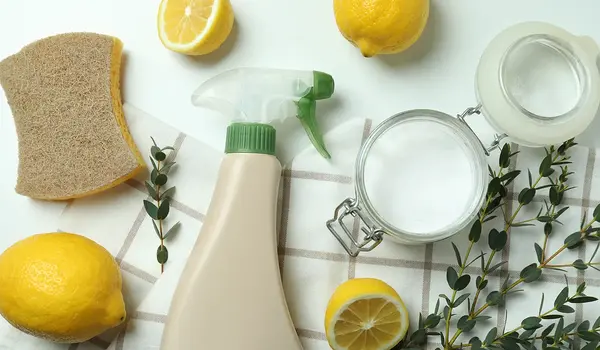Kitchen
Cleaning the Kitchen with Lemon: Amazing Results and Scent

The Power of Lemon for Kitchen Cleaning
Maintaining a clean home is a priority, but busy schedules make it challenging. Harsh chemicals can be unappealing, making natural solutions like lemon an excellent alternative. Its citric acid content works as an antibacterial and bleaching agent, making it perfect for cleaning kitchen messes.
Cleaning Countertops with Lemon
Black granite countertops often collect stains, especially with hard water leaving limescale rings around sinks. Instead of vinegar, try a simple lemon hack. Cut a lemon in half and use it like a sponge, scrubbing in circular motions. This method effectively removes limescale and leaves a fresh citrus scent.
Cleaning Wooden Accessories Naturally
Wooden kitchen tools, such as cutting boards and utensils, benefit from lemon’s antibacterial properties. After using lemon on countertops, apply it to wooden accessories for a natural clean. However, when dealing with raw meat, traditional dish soap ensures proper sanitation.
Freshening Up the Microwave
Lingering odors in the microwave, like buttery popcorn smells, can be eliminated with a lemon hack. Squeeze lemon juice into a microwave-safe cup of water and heat until boiling. The result? A fresh-smelling microwave without strong chemical cleaners.
Achieving Streak-Free Glassware
After using the lemon-water mixture in the microwave, transfer it to a spray bottle for cleaning drinking glasses. While this method works well for some surfaces, glassware may still show streaks, requiring traditional cleaners for best results.
Final Thoughts on Lemon Cleaning
Lemon cleaning hacks offer a fresh and chemical-free way to clean kitchen surfaces. From eliminating odors to removing limescale, lemon can be a powerful tool. However, for tough cleaning tasks, traditional methods may still be necessary. For more cleaning tips and home hacks, explore our website!
